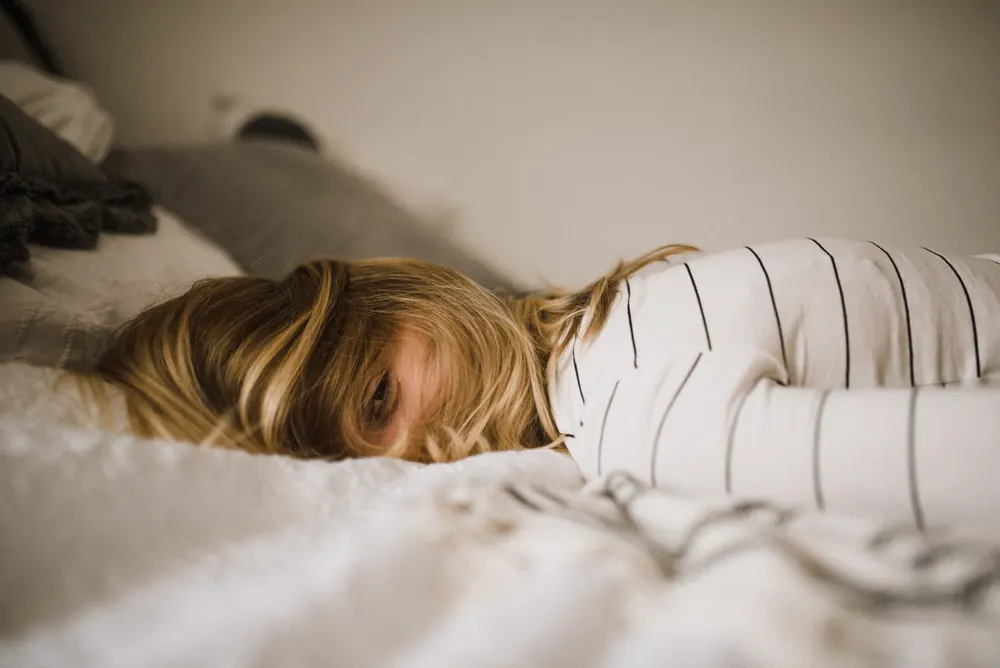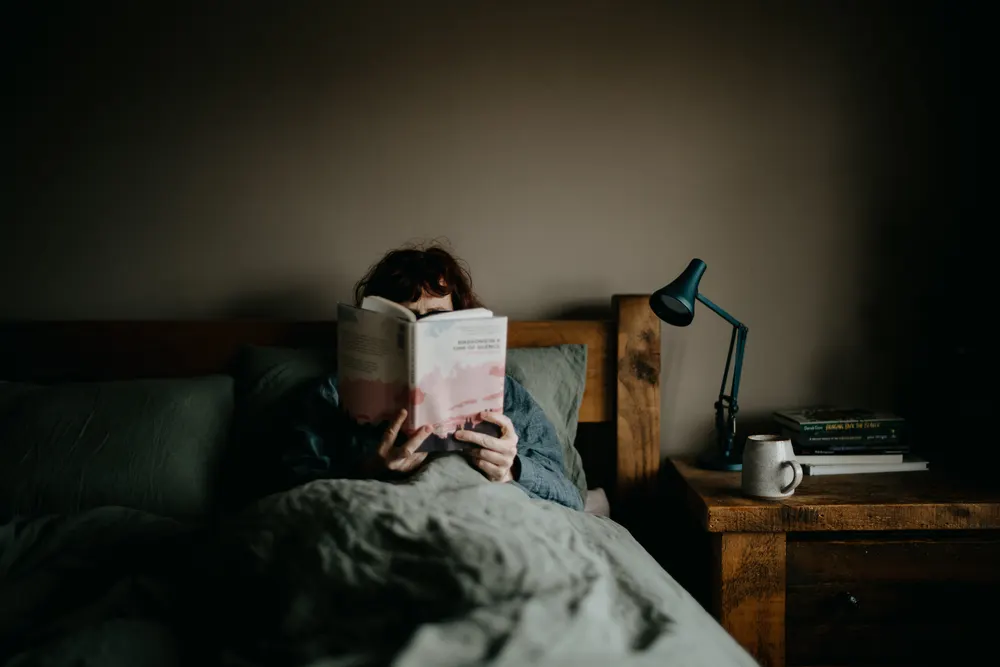
About one in three adults experiences sleep disturbance. If you are a bad sleeper, then you are certainly not alone.
If you experience panic attacks frequently, it’s likely that you also have trouble sleeping. Having sleeping problems is highly comorbid with anxiety. That is because a body in a constant state of anxiety is the opposite of a relaxed body.
Now, some people feel most anxious right after waking up. That can be explainable by our cortisol levels; they peak in the morning and are usually lowest in the evening and during the night. However, other people feel most anxious in the evening. Whatever the case might be for you, know that you’re not alone and that you can do something about it.
People with anxiety often seek help primarily for their sleeping problems. Unfortunately, anxiety and insomnia reinforce each other in a negative spiral. If you dread the night because you’re anxious, you are going to sleep badly, which can make you even more anxious for the upcoming night.
Why sleep is so important
When you’re in a constant state of anxiety throughout the day, your body is using up a lot of energy to keep your body in that state of high arousal. For example, it uses more of the hormones cortisol and adrenaline. The body can build necessary chemicals with the intake of nutrients through the food that we eat.
Sleep is the time to recover and replenish the body. If you experience a lot of anxiety, your body needs sufficient time to recover from this stress. Stress from worrying – the thinking part of anxiety – has an effect on our bodies. Anxiety is not just in our heads. It’s in our whole body. This blog post explains how this works.
As to why we dream, researchers are still not completely sure, but sleep surely is important to be able to tackle the days that are, for many of us, usually full of challenges.
When you should sleep
Did you know that every person has a certain chronotype that determines when during the day they can best concentrate, and when it’s the best time to go to sleep? It’s simply not true that it’s best for everyone to go to bed early. Maybe you only start to feel tired around midnight, and that’s okay.
The most important thing is not the hour on the clock, but when you start to feel sleepy. It’s even counterproductive to go to bed before you feel tired because, in a way, you are training yourself to lay awake in your bed. Your brain will then associate going to bed with lying awake, when you want to associate going to bed with sleeping. What is important, though, is to try to go to bed and get up around the same time every day. The reason for that is that the body releases hormones according to a certain rhythm, and you want to disturb this rhythm as little as possible.
The quality of your sleep is more important than the quantity, so don’t get hung up on the idea that you should get at least 8 hours of sleep every day. 8 hours of sleep is an average, but not optimal for everyone.
“The most important thing is not the hour on the clock, but when you start to feel sleepy.”
How to get your body to rest
Sleeping pills or melatonin are not a solution for sleeping problems. Melatonin is a hormone that we produce ourselves, and most people are not deficient in it. Extra supplementation with melatonin leads to a decrease in the quality of your sleep.
Alcohol may help to fall asleep faster, but it also negatively impacts the quality of your sleep.
There is no quick fix to immediately start sleeping better, but there are things you can do to increase that chance.
Always start with the basics, which are:
- A healthy, balanced diet
- Exercise and movement throughout the day
- Spending some time outdoors, preferably in the sun
- No coffee. It’s recommended to not drink any beverages that contain cafeïne when you’re experiencing anxiety attacks at all, and certainly not in the few hours prior to going to bed.
When you got the basics down, you want to make sure that you don’t do strenuous exercise in the hours before going to bed. Exercise and enough movement throughout the day will make you feel more tired in the evening, which is what you want.

How to get your mind to rest
Even when you’ve done everything you can to rest your body, you’re not going to fall asleep when your mind is still racing. But how do you stop that? As said before, there is no quick fix for sleeping problems. Only addressing your sleep, but not your anxiety, is probably not going to work. It should always be a holistic approach. And building new habits takes time.
So what are the specific habits that you need to pay attention to when addressing sleeping problems – aside from the basics mentioned earlier?
- Create an evening ritual, especially for the hour prior to going to bed. In this hour, you do things that calm you down. You could set an alarm that reminds you to start your evening ritual. The first thing you do, is putting away your phone. After that, you can read, walk in nature without music or other distractions, or meditate, for example with the app Insight Timer.
- Write your thoughts or your to-do list for the next day in a diary or notebook.
- Once you’re in bed, make sure there are no electronic devices in the bedroom.
- The bedroom should be dark, quiet, and not too hot or too cold. Around 17 degrees Celsius or 63 degrees Fahrenheit is perfect. Use a sleeping mask and/or (customised) earplugs if necessary.
- The hardest step: accept the situation. Even if you can only sleep for 6 hours until you have to get up, you can have good quality sleep and wake up with energy.

Building new habits takes time, so try it out for at least a week, preferably a few weeks. Relaxing or applying mindfulness is a skill. You need to learn how to do it. It’s like a muscle that needs to be used for it to get stronger. For many of us, relaxing is not something that we are able to do naturally. Why that is, you can read in this blog post.
In The Program you can learn more about sleeping better, if the general advice that’s discussed here doesn’t suffice for you. It also includes a step-by-step module to address insomnia.